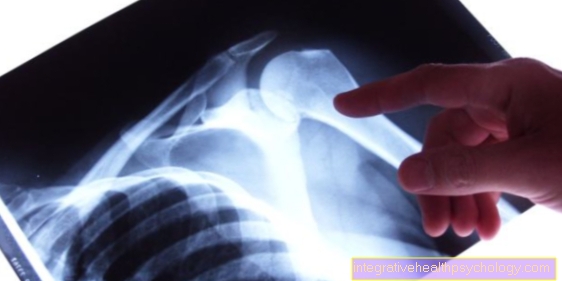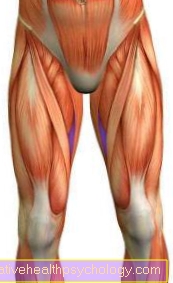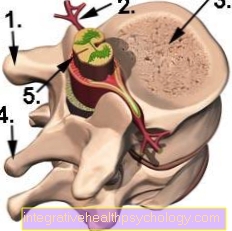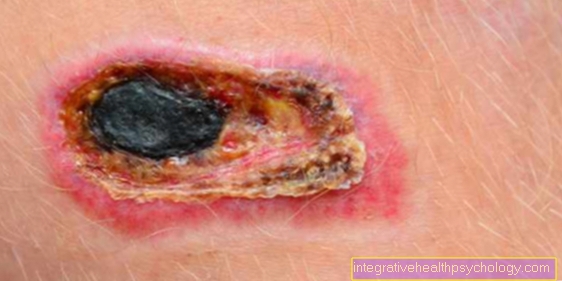Diet for gout
introduction
Gout is a metabolic disease in which too much uric acid builds up in the blood. Uric acid crystals develop, which are deposited in various places in the body, especially in the joints, bursa, tendons and internal organs. These deposits often lead to painful joint inflammation, which, if left untreated, can lead to joint damage. Crystals can also be deposited in the internal organs, which, for example, can cause severe functional disorders in the kidneys. Diet plays a major role in gout, as the right foods can influence uric acid levels.

Why can dieting trigger a gout attack?
The level of uric acid in the blood plays an important role in gout. Different foods have different effects on uric acid levels. Food of animal origin in particular promotes the production of uric acid in the body, which increases the uric acid level in the blood. The excretion of uric acid happens through the kidneys and is inhibited by alcohol consumption. This means that alcohol, animal foods such as meat, sausage, fish and interior have a negative effect on uric acid levels. They increase the risk of gout.
Legumes, cabbage and Brussels sprouts also promote the development of gout. These foods and those of animal origin are referred to as purine-rich foods. Purines from foods are converted to uric acid in the body and increase it accordingly. With the ketogenic diet, animal fats and legumes are on the menu, so that in the long term the risk of gout increases. The high animal fat content of the Atkins diet, which is not suitable for gout patients, is similarly dangerous. Diets high in purines can cause an attack of gout and should be strictly avoided.
Read more on this topic: Attack of gout
How can you prevent a gout attack?
In order to prevent an attack of gout, one should avoid diet rich in purine. In addition, being overweight increases the risk of gout. Weight control and weight loss can reduce the risk of gout attacks. It is very important to drink enough water when losing weight and if there is a risk of gout, i.e. at least 2 liters a day, in order to promote the excretion of uric acid via the kidneys. Drinking plenty of fluids also helps prevent uric acid build-up in the kidney. Treating risk factors for gout is also preventative. In addition to being overweight, these are high blood pressure and high cholesterol levels (see also: Diet for high cholesterol levels).
Prohibited foods in gout and diet
Basically, foods rich in purine should be avoided in gout. Red meat is high in purines and high in cholesterol. In contrast, white meat like chicken should be on the menu. Some specialists advise against pork and beef. Goose and turkey are high in purines and are not recommended for gout. Chicken and duck are comparable foods that are more suitable for gout patients.
Seafood should only be eaten in small amounts in gout, as it significantly increases the level of uric acid in the blood. Herring, on the other hand, should be completely removed from the menu. Anchovies, tuna, eel and crabs should only be eaten in small quantities. Gout patients should completely avoid internal organs such as liver, kidneys and sweetbreads.
Alcoholic beverages, especially beer, are dangerous in gout patients. It increases uric acid levels in the body while making uric acid more difficult to excrete. A gout attack can be triggered with high beer consumption. Sweetened soft drinks that contain corn syrup or fructose lead to an increased production of uric acid and should only be drunk rarely.
Read more on this topic: Diet for gout
Effects of asparagus in gout
Gout patients are not advised to consume large amounts of asparagus. Asparagus contains many purines, which are converted into uric acid in the body and which increase blood uric acid levels. Especially if you suffer from kidney disease or weakness, asparagus should be avoided, as the consumption of asparagus stimulates the kidneys. If the kidneys are not fully functional, excessively high uric acid levels can cause an acute attack of gout.
Effects of alcohol on gout
Alcohol should definitely be avoided as part of a gout diet. Alcohol prevents the excretion of uric acid, which means that when you drink alcohol, more uric acid builds up in the blood. High alcohol consumption can even trigger an acute gout attack. Beer in particular should be avoided, as it has a higher purine content than other alcohol and can trigger a gout attack in large quantities. In contrast to beer, wine does not contain any purines, but it can increase the uric acid content by slowing down the kidney function.
Purine table
Information per 100g (ml)
- Fillet of beef: purine 46mg - uric acid 110mg
- Roast pork: purine 48mg - uric acid 115mg
- Pig liver: Purine 216 - uric acid 515mg
- Turkey schnitzel, raw: purine 50mg - uric acid 120mg
- Liver sausage: purine 69mg - uric acid 165mg
- Pork ham, raw: purine 84mg - uric acid 200mg
- Turkey: purine 63mg - uric acid 150mg
- Herring: purine 88mg - uric acid 210mg
- Sardine: Purine 144mg - Uric Acid 345mg
- Plaice: purine 39mg - uric acid 93mg
- Potato: purine 6mg - uric acid 15mg
- Paprika, red: purine 6mg - uric acid 15mg
- Asparagus: purine 10mg - uric acid 25mg
- Peas, green: purine 40mg - uric acid 95mg
- Beer: purine 5mg - uric acid 13mg
- Wine: purine 0mg - uric acid 0mg
Basic nutrition
The alkaline diet is a diet based on alkaline foods, in which acidic foods are avoided at the same time. It is supposed to prevent over-acidification of the body and the acid-base balance (see also: Acid-base diet). A lot of fruit such as apples, pineapple, avocado, bananas, berries, mangoes, watermelon etc., numerous vegetables such as broccoli, beans, potatoes, peppers, beetroot and onions are allowed. Mushrooms, various herbs and salads, nuts, sprouts and basic konjac noodles or shirataki noodles are also on the menu.

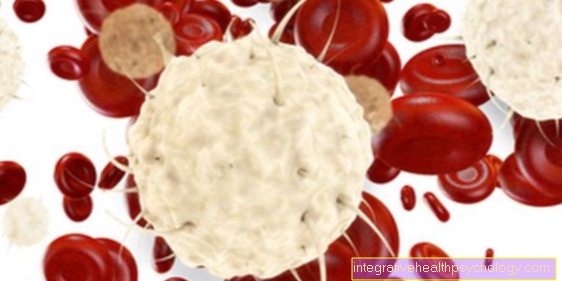


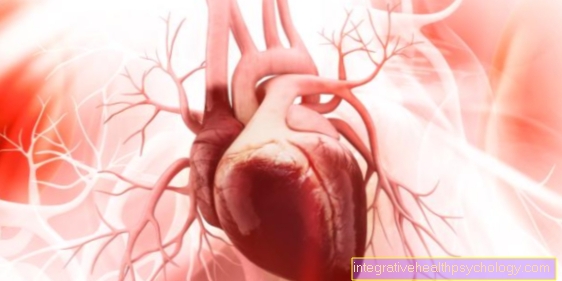

.jpg)

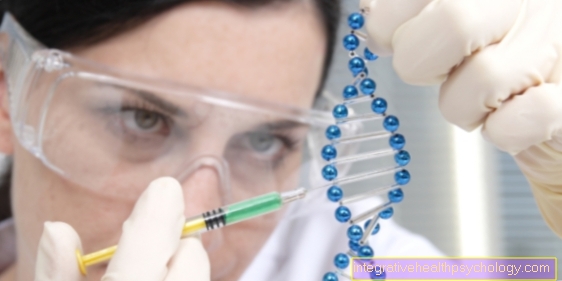

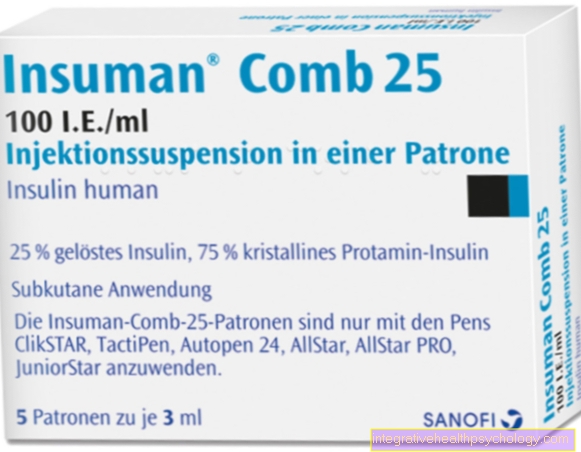
-buschmcke.jpg)




